
2024 Model Constitutional Convention
The first nationwide student-led constitutional convention in the United States!
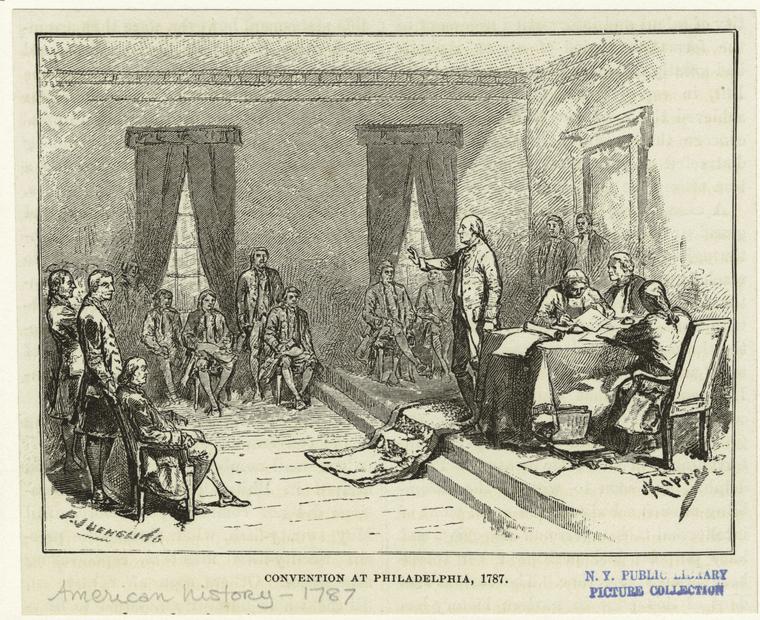
On May 23-26, 2024, the Center for Constitutional Design at the Sandra Day O’Connor College of Law at ASU hosted the first national student-led Model Constitutional Convention in the United States.
Convening in Phoenix, Arizona, students proposed, debated and adopted amendments to the United States Constitution in a simulated three-day Convention. Assembling in Phoenix as state convention delegates, undergraduate and law students from across the United States benefited from a rich learning experience focused on the process of constitutional change and reform in the United States.
The Model Convention took place on May 23-26, 2024 at the Sandra Day O’Connor College of Law at Arizona State University. ASU’s law school is located in downtown Phoenix and is housed in the new and highly-modern Beus Center for Law and Society, located at 111 East Taylor Street, Phoenix AZ, 85004.
Model Constitutional Convention documentary
We are pleased to report that the center’s first ever student-led Model Constitutional Convention (MCC) was a great success! From May 23 to 26, 106 law and undergraduate students from more than 70 universities served as delegates for the states and territories at the Sandra Day O’Connor College of Law. These engaged and civic-minded students debated 20 amendments to the constitution and adopted four amendments: an equal rights amendment, an amendment limiting eminent domain, an amendment eliminating partisan gerrymandering and an amendment enhancing tribal sovereignty. Debate was governed by Roberts Rules of Order and managed by an able and elected president, vice president and secretary to the convention.
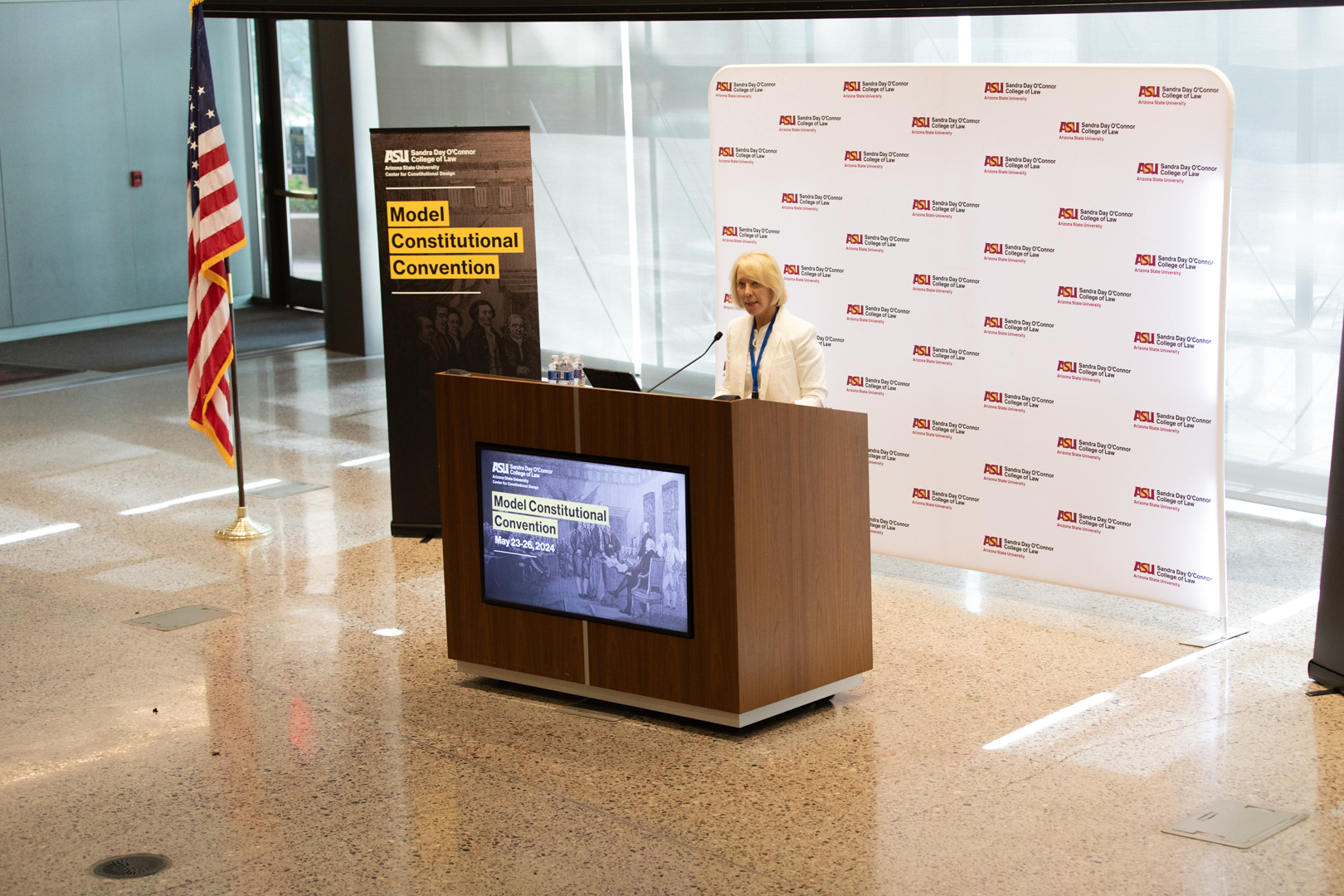
Convention Details and Resources
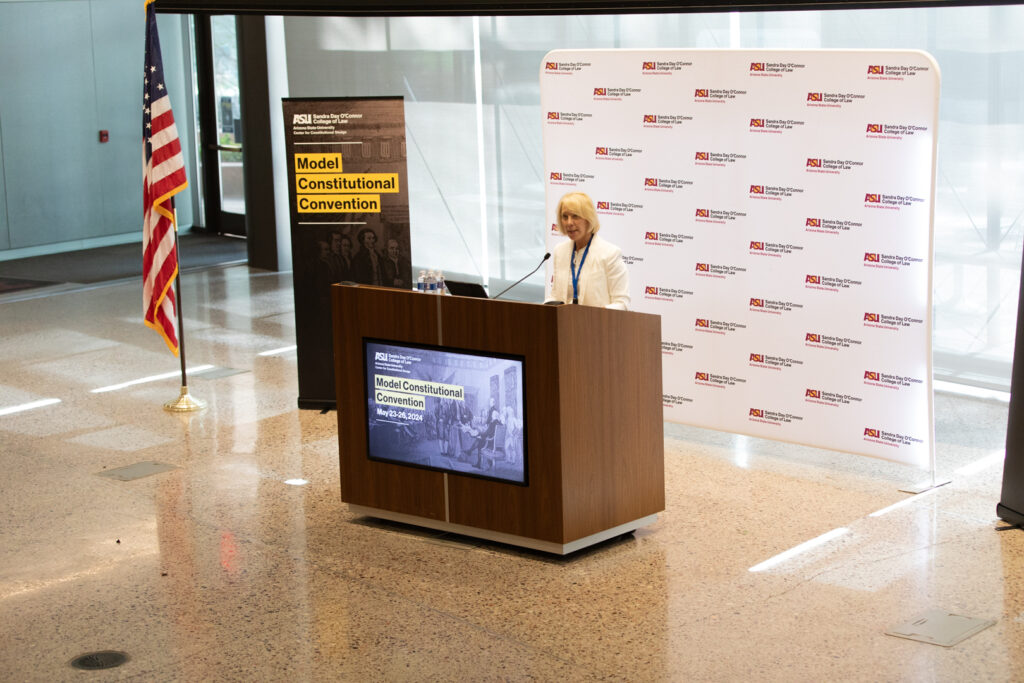
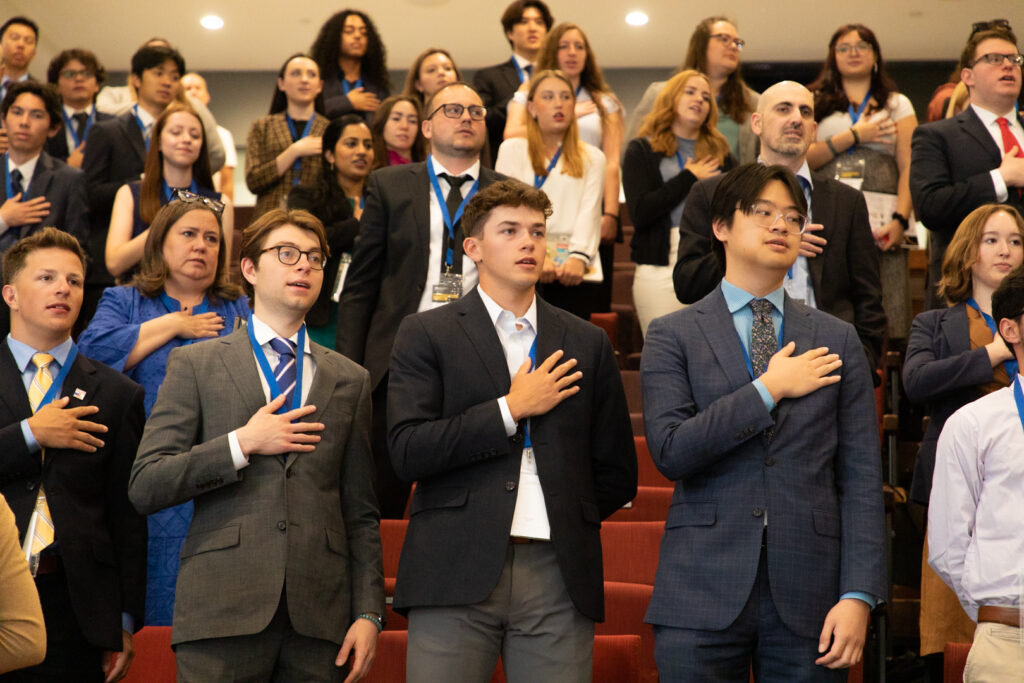
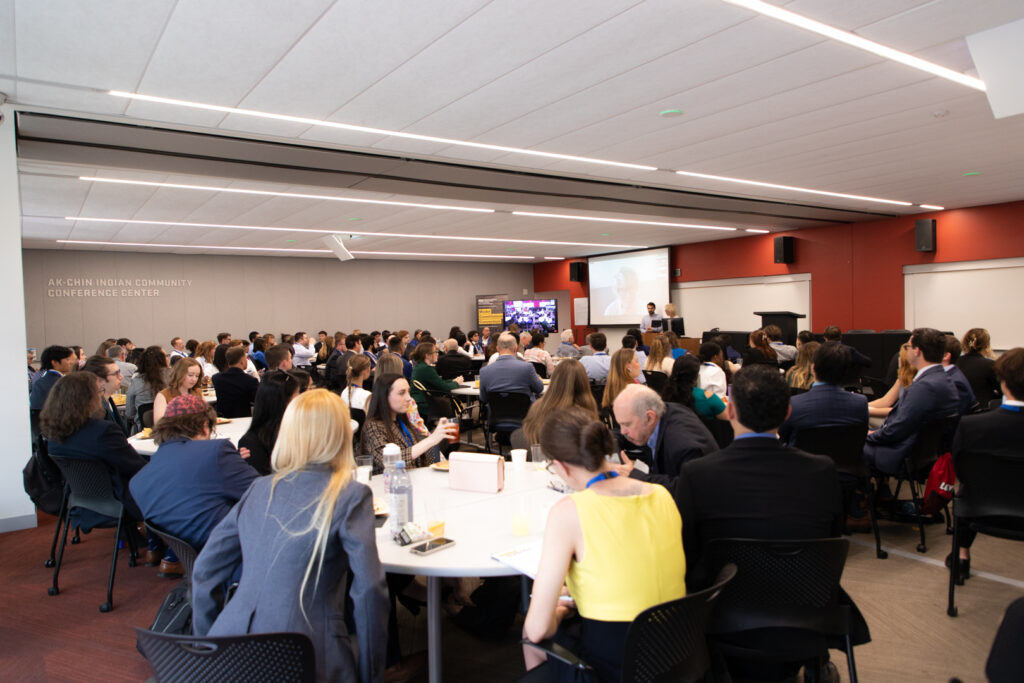
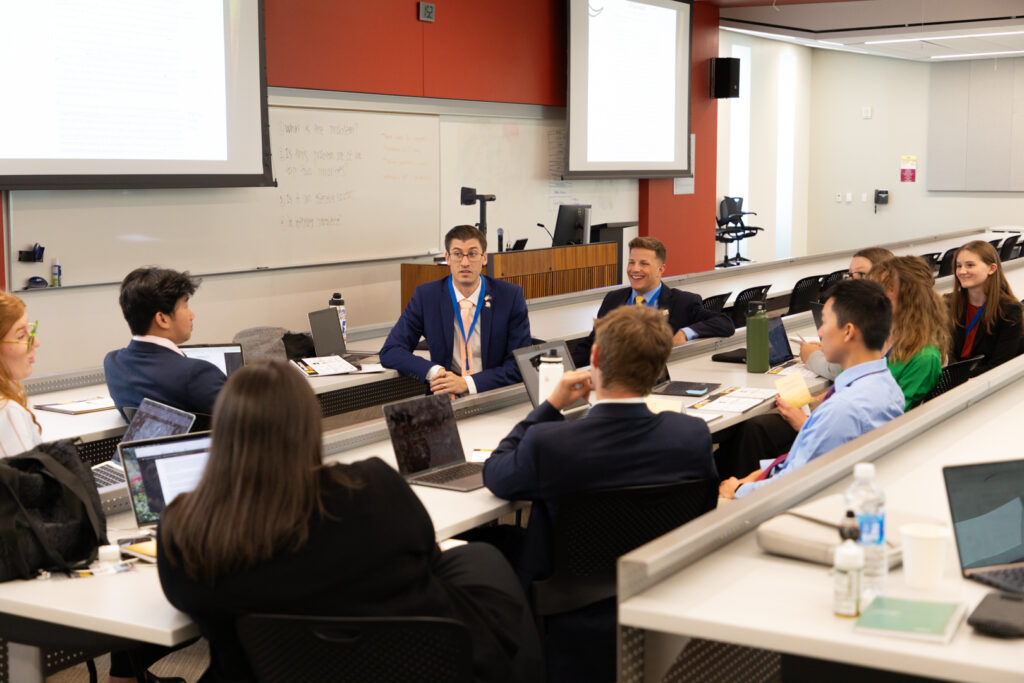
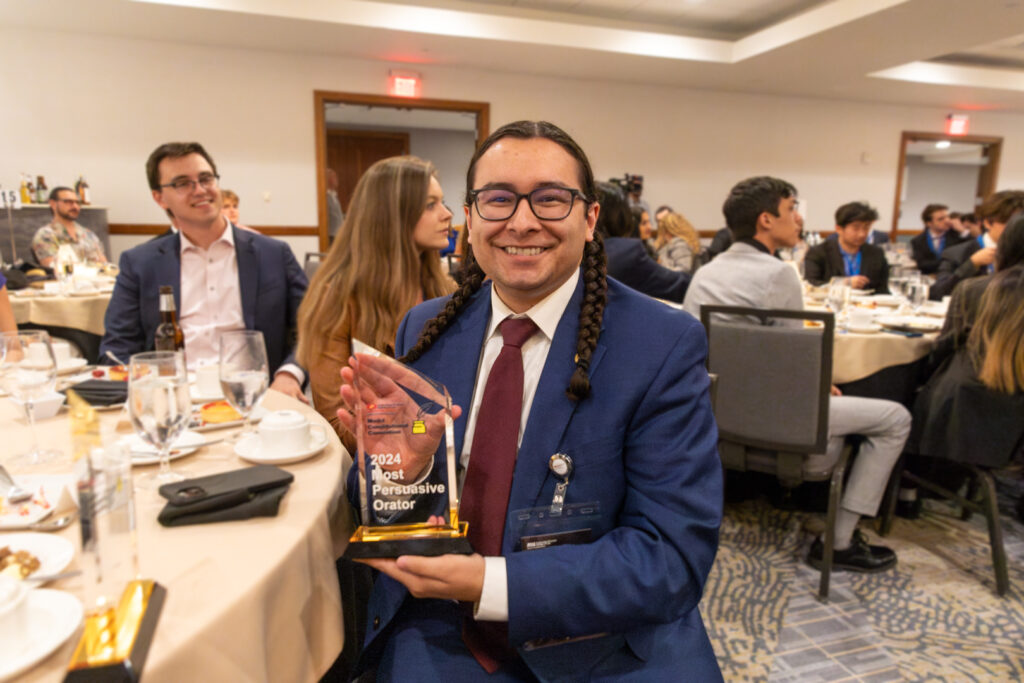
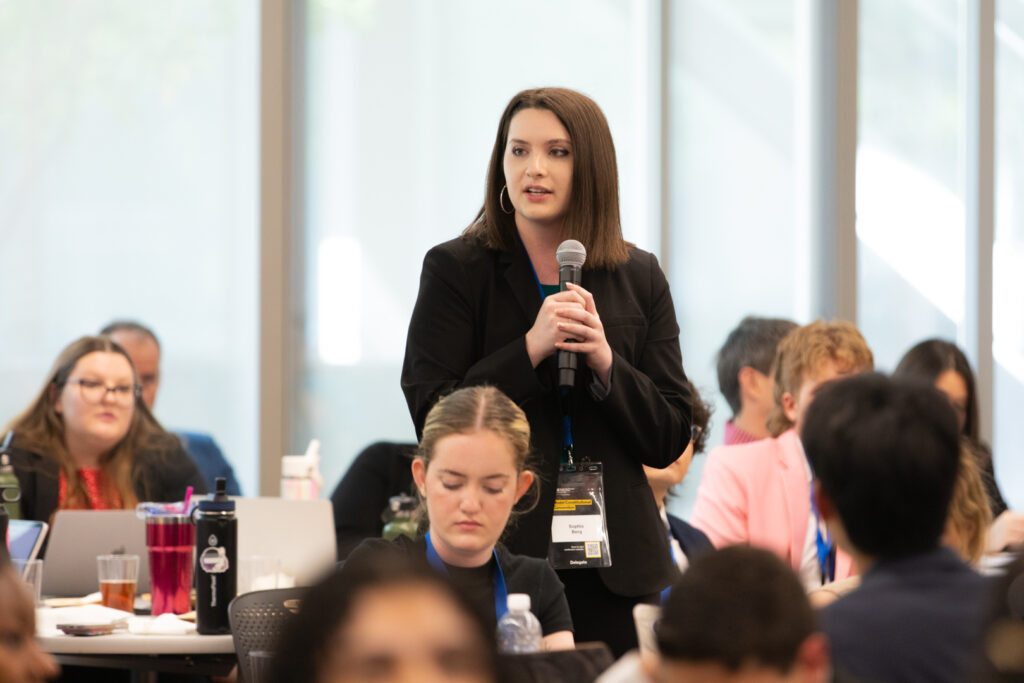
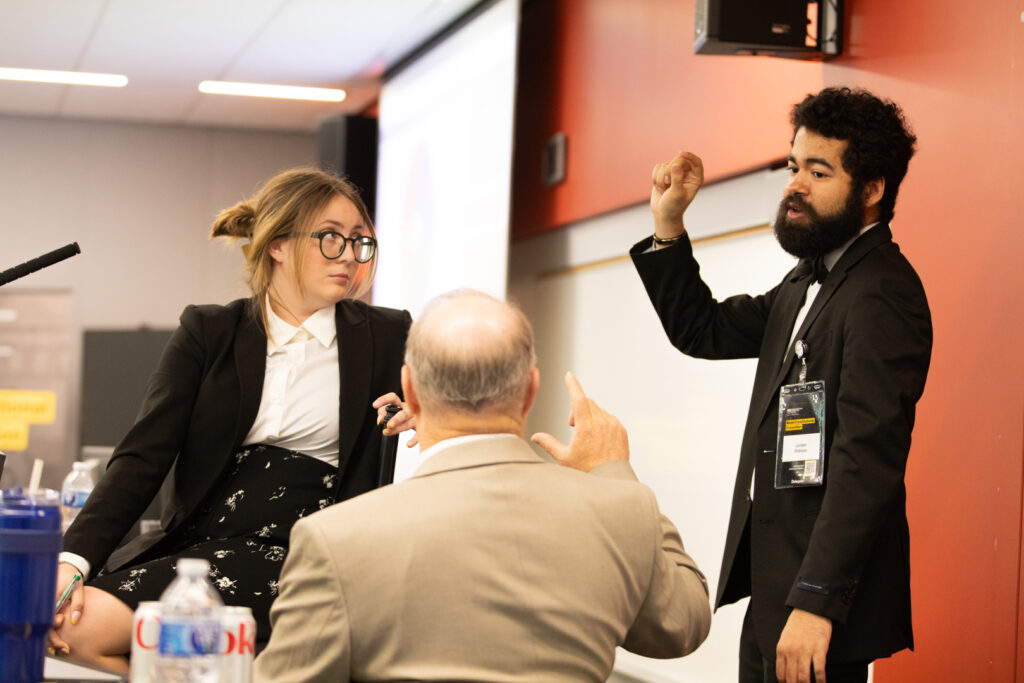
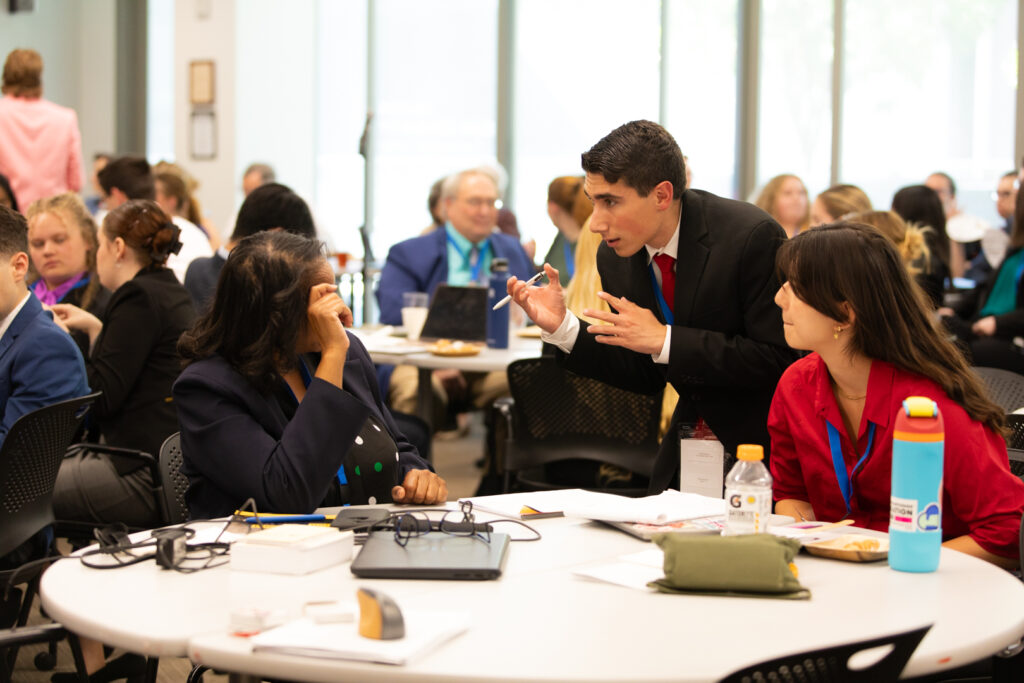
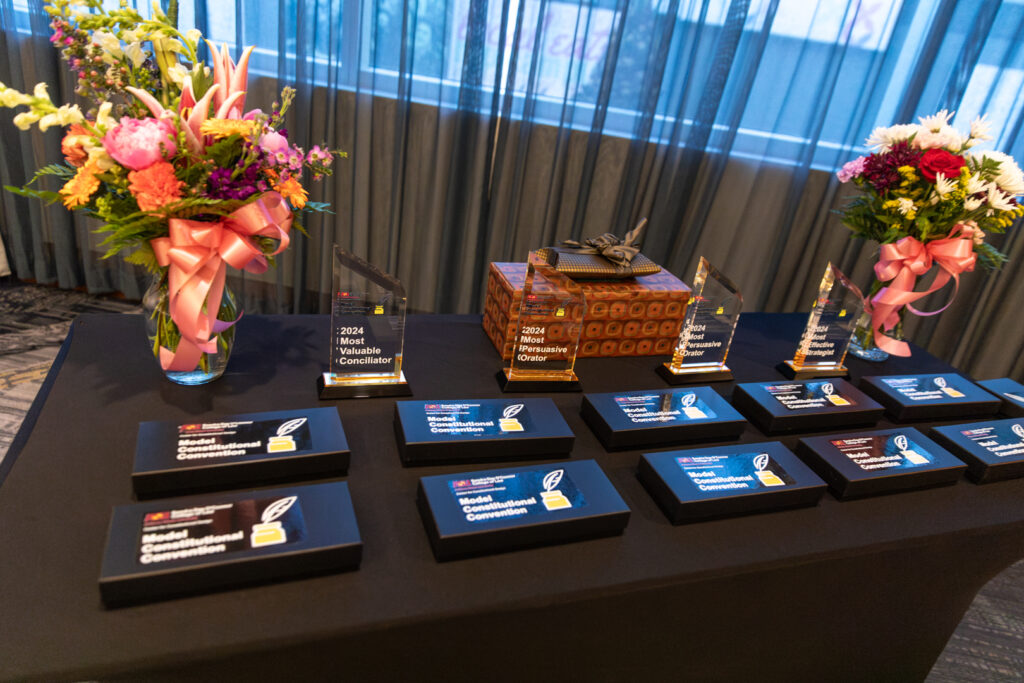
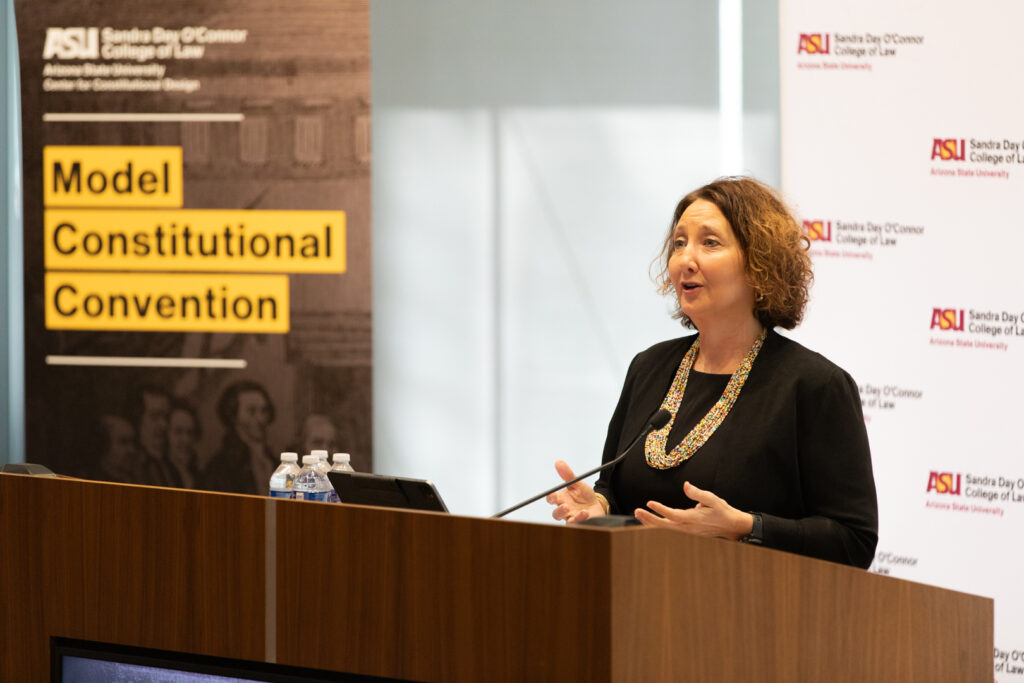
Framework for the Simulation
The Model Constitutional Convention follows one of the two procedures available under Article V of the United States Constitution to adopt constitutional amendments. The first and most typical method requires the adoption of an amendment by a 2/3 vote in Congress. The second method allows the legislatures of 2/3 of the states to submit an application to Congress requesting that Congress call a national convention to consider one or several constitutional amendments. This second method is often referred to as a “Convention of the States” or as an “Article V Convention.” Both methods then require any proposed amendment be ratified by ¾ of the states (either by the state legislatures or via state conventions).
Student delegates arrived in Phoenix on May 23, 2024 and assembled to begin deliberations on May 24, 2024 on the working premise that Congress has summoned the delegates by a 2/3 vote to convene a constitutional convention under Article V of the United States Constitution for the purpose of amending the Constitution.
The Model Convention begin their deliberations with five amendments drafted by scholars pursuant to the National Constitution Center’s Constitution Drafting Project. Delegates had the opportunity to propose any amendments of their choosing during the small committees within the limits imposed by time and the orderly administration of the committee deliberations.
The Model Convention assumes that each state has an equally-weighted vote (two delegates each), and that, like the 1787 Constitutional Convention in Philadelphia, each delegation must vote as a block. All Convention matters will proceed in accordance with Roberts Rules of Order and incorporate many of the rules followed by the Framers at the 1787 Convention in Philadelphia. Rules of order and norms of civility will be enforced throughout the convention. The student delegates to the convention will discuss, deliberate, and ultimately vote on the proposed amendments in committee sessions and on the floor of the Convention.
The Model Constitutional Convention in the news
Takeaways From the First Student-Led Model US Constitutional Convention
The Model Constitutional Convention was a highly enlightening experience that bolstered my hope for the continued success of our nation. It taught me that productive discussions, polite debate, and gracious compromise are possible when navigating a contentious political process. After attending the Convention, I am more sure than ever that choosing to pursue a legal career was the best decision of my life.